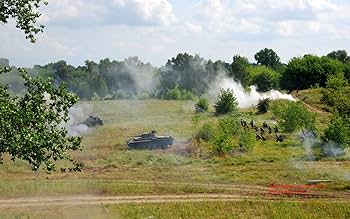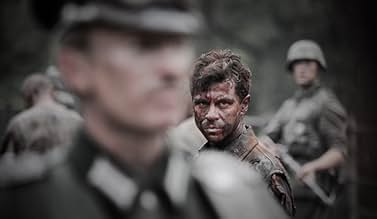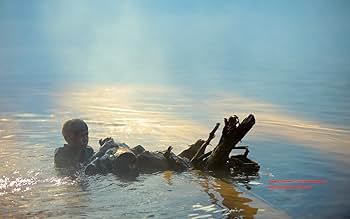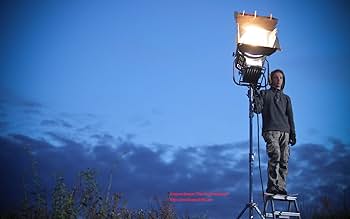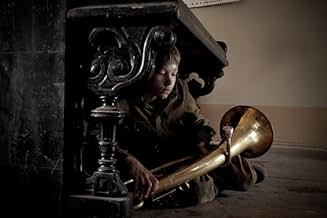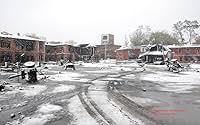NOTE IMDb
7,4/10
11 k
MA NOTE
Un drame de guerre qui se déroule pendant l'invasion de l'Union soviétique par les nazis en juin 1941, au cours de laquelle les troupes soviétiques ont tenu une place forte à la frontière du... Tout lireUn drame de guerre qui se déroule pendant l'invasion de l'Union soviétique par les nazis en juin 1941, au cours de laquelle les troupes soviétiques ont tenu une place forte à la frontière durant neuf jours.Un drame de guerre qui se déroule pendant l'invasion de l'Union soviétique par les nazis en juin 1941, au cours de laquelle les troupes soviétiques ont tenu une place forte à la frontière durant neuf jours.
- Réalisation
- Scénario
- Casting principal
- Récompenses
- 7 victoires et 14 nominations au total
Aleksey Kopashov
- Sashka Akimov
- (as Alyosha Kopashov)
Anna Tsukanova-Kott
- Sonya
- (as Anna Tsukanova)
Avis à la une
10chip1977
I like this movie considering all the crap films made in my country for last 20 years. From my view it has almost no propaganda (ok, I'm brainwashed already). Narrator probably is telling less that he could, so some plot points are not that clear, but the film keeps you at the screen for all the time.
And final note to some historians here: if you mention history background and occupation of Brest by Soviet Union in 1939, please go further and mention that it was taken by Poland from Russia in 1919, it was behind the Curzon line (the Poland people were not the majority of population) and should have stayed the Russian city.
And final note to some historians here: if you mention history background and occupation of Brest by Soviet Union in 1939, please go further and mention that it was taken by Poland from Russia in 1919, it was behind the Curzon line (the Poland people were not the majority of population) and should have stayed the Russian city.
10nh3nh4
In case you've come upon this movie by accident, I'd suggest you go ahead and watch it, and then return return back to read the reviews.
The Brest Fortress pushes war movies to a completely different level of realism, poetry and emotional force. It is so visceral, so real and so emotionally powerful that by the end you're part of the battle and no longer a detached viewer. Not a single shot is wasted, not a single line of dialog is a filler, not a single acting even from extras feels like acting, not a single moment do you feel that this is a movie and not real life. The makeup, the wounds, the dirt, the blood, everything is real and it all hits you with one of the best cinematography in a war movie since Ivan's Childhood. And The Brest Fortress pays homage to that great movie in many ways.
Russians suffered unimaginable horrors during WWII and that trauma in their psyche along with their great heritage of story telling and great cinema combines to create another great Russian war movie.
I feel privileged to have watched this movie, knowing that its still unknown in the west, there is not even a wikki page about it yet.
The Brest Fortress pushes war movies to a completely different level of realism, poetry and emotional force. It is so visceral, so real and so emotionally powerful that by the end you're part of the battle and no longer a detached viewer. Not a single shot is wasted, not a single line of dialog is a filler, not a single acting even from extras feels like acting, not a single moment do you feel that this is a movie and not real life. The makeup, the wounds, the dirt, the blood, everything is real and it all hits you with one of the best cinematography in a war movie since Ivan's Childhood. And The Brest Fortress pays homage to that great movie in many ways.
Russians suffered unimaginable horrors during WWII and that trauma in their psyche along with their great heritage of story telling and great cinema combines to create another great Russian war movie.
I feel privileged to have watched this movie, knowing that its still unknown in the west, there is not even a wikki page about it yet.
War movies based on true events are always something special because you can feel the suffering and the absurdity of war. Most of World War II movies are about well known battles like Normandy, Obama Beach, The Ardennes and so on, but I prefer watching more unknown battles because they have the right to be remembered also. In this movie we get another untold story about the Soviet troops defending the Brest fortress against the German Nazi invasion. We will never know how accurate those battles are. It's a Soviet movie so it might been shot as Soviet propaganda. But the least we can say is that this movie is very well done. Not the usual goodlooking Hollywood stars playing a war hero, but actual day-to-day normal looking people, like you and me, acting in some very captivating scenes. I don't know if those actors are famous in their fatherland but they sure did a hell of a good job. Probably not with a huge budget, they still managed to make it look pretty real. The story about this East front battle is special, sometimes told with a narrating voice of a kid that survived this hell, and will certainly have your attention. After Anthropoid and Kajaki, another great war movie that won't leave you without emotion.
If you read my title, you might consider the comparison perhaps the most famous American world war epic odd, but I'll explain that shortly.
To get the necessities out of the way--the film describes the fall of the Brest Fotress in far western Belarus (or Byelorussian SSR, in this case). The film does not elaborate on the history, as already pointed out: it does not point out that Brest was captured from Poland just two years earlier, courtesy of the Brest-Litovsk Treaty. Nor does it mention the Polish population of Brest, forced west or deported to the east by the government after that fact. And finally, it does not mention that Brest, like the rest of Western Belarus, was subject to a Polish colonization effort after Poland annexed it (during the first Polish-Soviet War, which they won) and under military rule due to conflicts between Poles and Belarusians. All of this is, as it happens, not relevant to the movie makers, and given how few people have heard of the first Polish-Soviet War, the Polonization of West Belarus, or the deportation of Brest's Polish residents, it's not surprising. Outside of the CIS countries and eastern Poland, you'll be surprised to find anyone know knows Belarus is its own country. Brest is a rough, rural, but otherwise idyllic countryside town--unbelievable from a western perspective, perhaps, but not in conflict with survivor narratives we have today, and intended to set up the disaster that follows.
The movie DOES offer some historic context, however--it begins with Major Gavrilov's warning of an impending disaster for Brest, and the Brest Fortress, in the event of a German invasion, though he is dismissed by skeptical comrades more trusting of their country's "ally". When the war begins in earnest, Gavrilov, Commissar Fomin, and Lieutenant Kizhevatov rally a bloody, nearly fanatical defense of their country and, for many, their home against the German invasion. This makes up the meat of the movie, with the narrative of a foster student Sashka, attached to a military band, caught in the middle. The war cinematography is thrilling and exciting, comparable to the aforementioned "Saving...", albeit with an emphasis on brutal close-quarters fighting--exaggerated, potentially, for the necessity of emphasizing the difference between mechanized warfare in the field and indoor fighting in somewhere like Brest or Stalingrad. Seeing the Soviet defenders--mostly Red Army men, joined by die-hard Frontier troops and a few NKVD Rifle Battalion NCOs, from what I see--counter-attack German positions with shovels and chairs as well as rifles and machineguns seems unbelievable at first, but it doesn't clash with the western narrative of a primitive Red Army, or accounts of hand-to-hand fighting from both world wars. The disastrous results that usually follow serve as a reminder that this isn't something fantastical like "Enemy at the Gates" or an optimistic adventure like "Inglorious Bastards". Thhe defenders themselves are portrayed as human and vulnerable, capable of tears, despair and emotion at inopportune times--though it suffers from a "blink and you'll miss it", situation the scant non-Slavs shown in the Red Army.
As a war movie, it's portrayal of the German enemy is naturally important. The Germans are portrayed, as usual, as organized, very competent, and extremely clever--an infiltration scene early on, wherein German commandos impersonate NKVD NCOs to enter the fortress highlights this. However, there's hardly any more demonization of them then in "Saving Private Ryan" or "Band of Brothers", in part because they're also portrayed distantly and hidden, in contrast with the very human Soviet defenders--with a few exceptions. In one, some Germans are shown about to assault a captured woman, who is ultimately gunned down--this is hardly unbelievable, and it serves more to show the guilt felt by a (civilian) Byelorussian at having used the distraction she provided to escape his own fate, than the Germans being ravenous monsters. In another, the advancing Germans gun down fleeing civilians from a machinegun position. Damning, certainly, but consider: during the German occupation, between 2 and 2.5 million people in Byelorussia, of nine million, perish. The scene, if fictionalized, is likely intended to demonstrate the particular callousness the Germans, as a whole, displayed towards "Reichskommissariat Ostland". Aside from this, Germans usually seem distant and, on occasion, just as desperate as their Soviet enemies.
"Fortress" stands well with its American counterparts, and even decently with epics like "Come and See", ending with a sobering tribute to the film's historical personalities--the vindicated Pyotr Gavrilov is explained as having survived German captivity only to be imprisoned for the act of surrender (though the movie inaccurately suggests such a fate befell "most" POWs, when it was primarily inflicted on officers and others who carried more "blame"), only to be rehabilitated and made Hero of the USSR in 1957, in a damning critique of the country, and Stalin's, complacency towards Germany. The Jewish Commissar Fomin, being twice a target of the German Commissar Order, is executed immediately. The movie goes out of its way to defend those who did surrender, suggested they only did so at the behest of the defenders, after army men begged their families to take the German offers for leniency. Soldiers who surrender are shown as only having been human, witnesses to extraordinary violence, and are understandably broken, and even have a degree of sympathy from those who fight on. All and all, this is a well-done, particularly sympathetic, and highly enjoyable war epic that maintains the tradition of sobering portrayals we've expected from CIS cinematography on the Second World war.
To get the necessities out of the way--the film describes the fall of the Brest Fotress in far western Belarus (or Byelorussian SSR, in this case). The film does not elaborate on the history, as already pointed out: it does not point out that Brest was captured from Poland just two years earlier, courtesy of the Brest-Litovsk Treaty. Nor does it mention the Polish population of Brest, forced west or deported to the east by the government after that fact. And finally, it does not mention that Brest, like the rest of Western Belarus, was subject to a Polish colonization effort after Poland annexed it (during the first Polish-Soviet War, which they won) and under military rule due to conflicts between Poles and Belarusians. All of this is, as it happens, not relevant to the movie makers, and given how few people have heard of the first Polish-Soviet War, the Polonization of West Belarus, or the deportation of Brest's Polish residents, it's not surprising. Outside of the CIS countries and eastern Poland, you'll be surprised to find anyone know knows Belarus is its own country. Brest is a rough, rural, but otherwise idyllic countryside town--unbelievable from a western perspective, perhaps, but not in conflict with survivor narratives we have today, and intended to set up the disaster that follows.
The movie DOES offer some historic context, however--it begins with Major Gavrilov's warning of an impending disaster for Brest, and the Brest Fortress, in the event of a German invasion, though he is dismissed by skeptical comrades more trusting of their country's "ally". When the war begins in earnest, Gavrilov, Commissar Fomin, and Lieutenant Kizhevatov rally a bloody, nearly fanatical defense of their country and, for many, their home against the German invasion. This makes up the meat of the movie, with the narrative of a foster student Sashka, attached to a military band, caught in the middle. The war cinematography is thrilling and exciting, comparable to the aforementioned "Saving...", albeit with an emphasis on brutal close-quarters fighting--exaggerated, potentially, for the necessity of emphasizing the difference between mechanized warfare in the field and indoor fighting in somewhere like Brest or Stalingrad. Seeing the Soviet defenders--mostly Red Army men, joined by die-hard Frontier troops and a few NKVD Rifle Battalion NCOs, from what I see--counter-attack German positions with shovels and chairs as well as rifles and machineguns seems unbelievable at first, but it doesn't clash with the western narrative of a primitive Red Army, or accounts of hand-to-hand fighting from both world wars. The disastrous results that usually follow serve as a reminder that this isn't something fantastical like "Enemy at the Gates" or an optimistic adventure like "Inglorious Bastards". Thhe defenders themselves are portrayed as human and vulnerable, capable of tears, despair and emotion at inopportune times--though it suffers from a "blink and you'll miss it", situation the scant non-Slavs shown in the Red Army.
As a war movie, it's portrayal of the German enemy is naturally important. The Germans are portrayed, as usual, as organized, very competent, and extremely clever--an infiltration scene early on, wherein German commandos impersonate NKVD NCOs to enter the fortress highlights this. However, there's hardly any more demonization of them then in "Saving Private Ryan" or "Band of Brothers", in part because they're also portrayed distantly and hidden, in contrast with the very human Soviet defenders--with a few exceptions. In one, some Germans are shown about to assault a captured woman, who is ultimately gunned down--this is hardly unbelievable, and it serves more to show the guilt felt by a (civilian) Byelorussian at having used the distraction she provided to escape his own fate, than the Germans being ravenous monsters. In another, the advancing Germans gun down fleeing civilians from a machinegun position. Damning, certainly, but consider: during the German occupation, between 2 and 2.5 million people in Byelorussia, of nine million, perish. The scene, if fictionalized, is likely intended to demonstrate the particular callousness the Germans, as a whole, displayed towards "Reichskommissariat Ostland". Aside from this, Germans usually seem distant and, on occasion, just as desperate as their Soviet enemies.
"Fortress" stands well with its American counterparts, and even decently with epics like "Come and See", ending with a sobering tribute to the film's historical personalities--the vindicated Pyotr Gavrilov is explained as having survived German captivity only to be imprisoned for the act of surrender (though the movie inaccurately suggests such a fate befell "most" POWs, when it was primarily inflicted on officers and others who carried more "blame"), only to be rehabilitated and made Hero of the USSR in 1957, in a damning critique of the country, and Stalin's, complacency towards Germany. The Jewish Commissar Fomin, being twice a target of the German Commissar Order, is executed immediately. The movie goes out of its way to defend those who did surrender, suggested they only did so at the behest of the defenders, after army men begged their families to take the German offers for leniency. Soldiers who surrender are shown as only having been human, witnesses to extraordinary violence, and are understandably broken, and even have a degree of sympathy from those who fight on. All and all, this is a well-done, particularly sympathetic, and highly enjoyable war epic that maintains the tradition of sobering portrayals we've expected from CIS cinematography on the Second World war.
I don't like reading subtitles, but I will for a particularly good movie, and this certainly is one. I also don't normally gravitate toward war movies, but again, I'll make an exception for a good one, and I give this one a 9. It might be even better than that. There is so much for the eye here; I'm very impressed at the amount of work which must have gone into making every shot look so real. Also, the soundtrack was not overwhelming; for the most part, what we see is what carries the emotion, and that is a testament to the power of the events and the quality of the reconstruction of them for this movie.
There's a lot of violence, shooting, dying, etc. here, but not a lot of really nasty gore, which is something I appreciate. I'm sure the reality may have been even uglier than what is shown in this movie, but I don't need to see every last ounce of gore to know that war sucks and people get horribly maimed and killed. What is shown is enough to make the point well.
Very high quality movie; strongly recommended.
There's a lot of violence, shooting, dying, etc. here, but not a lot of really nasty gore, which is something I appreciate. I'm sure the reality may have been even uglier than what is shown in this movie, but I don't need to see every last ounce of gore to know that war sucks and people get horribly maimed and killed. What is shown is enough to make the point well.
Very high quality movie; strongly recommended.
Le saviez-vous
- GaffesAround time code 1h20, we see Stukas bombing the fortress. The firsts Stukas pass arrive correctly. The other Stukas have their head down and arrive on the back. Technicians have probably inverted the images.
- ConnexionsFeatures Les joyeux garçons (1934)
Meilleurs choix
Connectez-vous pour évaluer et suivre la liste de favoris afin de recevoir des recommandations personnalisées
- How long is Fortress of War?Alimenté par Alexa
Détails
- Date de sortie
- Pays d’origine
- Site officiel
- Langues
- Aussi connu sous le nom de
- La Bataille De Brest-Litovsk
- Lieux de tournage
- Sociétés de production
- Voir plus de crédits d'entreprise sur IMDbPro
Box-office
- Montant brut mondial
- 4 569 604 $US
- Durée2 heures 18 minutes
- Couleur
- Mixage
- Rapport de forme
- 2.35 : 1
Contribuer à cette page
Suggérer une modification ou ajouter du contenu manquant


